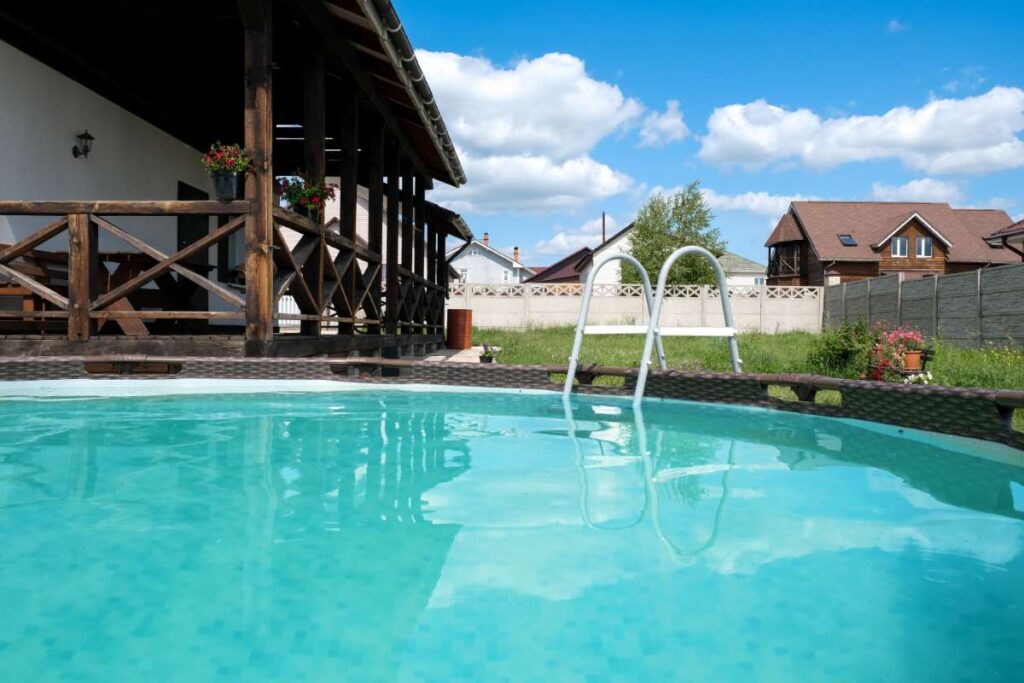Navigating Coastal Regulations: Pool Maintenance Near Florida’s Beaches
Discover the essential guide to navigating coastal regulations for pool maintenance near Florida’s beautiful beaches, ensuring compliance and sustainability.
This comprehensive guide explores the intricate coastal regulations governing pool maintenance near Florida’s beaches. As a homeowner, pool service provider, or aspiring entrepreneur in the pool maintenance industry, understanding these regulations is vital. This article will cover the significance of coastal regulations, the environmental impacts, best practices for compliance, and how Superior Pool Routes can help you navigate this complex landscape.
Introduction
Florida is renowned for its stunning coastline, attracting both residents and tourists to its sandy beaches and warm waters. With thousands of pools serving homes and resorts alike, the maintenance of these pools is essential. However, with the beauty of Florida’s coastline comes the responsibility of adhering to strict coastal regulations designed to protect the environment. Understanding these regulations is crucial not only for compliance but also for the sustainability of Florida’s beaches. In this article, we’ll delve into what these regulations entail, how they impact pool maintenance, and the best practices for maintaining pools without harming the coastal ecosystem. Additionally, we’ll explore how companies like Superior Pool Routes can assist you in your journey to becoming a responsible pool maintenance provider in this unique environment.
Understanding Coastal Regulations
Coastal regulations in Florida are primarily established to protect sensitive ecosystems, including wetlands, wildlife habitats, and water quality. Here are some key points to consider:- Regulatory Framework: The Florida Department of Environmental Protection (FDEP) oversees coastal regulations, including the Clean Water Act and various local ordinances tailored to specific regions.- Permitting Requirements: Pool maintenance and construction might require permits, particularly if they affect coastal waters or wetlands. It is essential to check local regulations before beginning any pool-related work.- Best Management Practices (BMPs): Implementing BMPs helps minimize environmental impact. These practices include proper chemical storage, minimizing water runoff, and using eco-friendly pool cleaning products.Understanding the specific regulations for your region is crucial. For instance, coastal areas may have stricter guidelines compared to inland regions. To find detailed information about the regulations applicable in your area, refer to
Pool Routes FAQ.
The Environmental Impact of Pool Maintenance
Maintaining a pool near Florida’s beaches can have significant environmental implications if not managed correctly. Here are some factors to consider:- Water Quality: Chemicals used in pool maintenance, such as chlorine, can end up in nearby waterways, affecting marine life. It is essential to use products that are less harmful to the environment.- Water Usage: Pools require a substantial amount of water for maintenance. During drought conditions, it’s crucial to implement water-saving strategies, such as efficient filtration systems and regular maintenance to prevent leaks.- Landscaping and Runoff: Landscaping around pools can contribute to runoff. Using native plants and pervious materials can help reduce the impact of runoff on local ecosystems.By prioritizing environmental stewardship in pool maintenance, service providers can play a pivotal role in protecting Florida’s coastal ecosystems. Companies like Superior Pool Routes emphasize the importance of environmentally friendly practices, ensuring that their clients maintain compliance while effectively serving their customers.
Best Practices for Compliant Pool Maintenance
To ensure compliance with coastal regulations while maintaining pool standards, consider the following best practices:1. Regular Training and Education: Stay updated on the latest regulations and practices. Superior Pool Routes offers extensive training programs, including virtual training and in-field sessions, to ensure that service providers are well-informed. 2. Chemical Management: Utilize eco-friendly pool maintenance products and strategies. Regularly checking chemical levels and preventing overuse can help maintain pool quality while protecting the environment.3. Efficient Water Use: Implement a water conservation plan. Regularly check for leaks, install water-efficient systems, and educate clients on best practices for maintaining pool water levels.4. Stormwater Management: Develop a stormwater management plan to minimize runoff. Use barriers, absorbent landscaping, and proper drainage systems to manage water flow.5. Monitoring Local Regulations: Regularly check with local authorities for updates on coastal regulations. Staying informed helps ensure compliance and allows for timely adjustments to practices.By adopting these best practices, pool maintenance providers can navigate the complexities of coastal regulations effectively. If you’re looking for structured support in implementing these practices,
Pool Routes Training through Superior Pool Routes can provide you with the necessary tools and resources.
The Role of Superior Pool Routes in Compliance
For aspiring entrepreneurs and established service providers, Superior Pool Routes offers a unique opportunity to enter the pool maintenance industry while ensuring compliance with coastal regulations. Here’s how they can assist:- Streamlined Account Acquisition: With over 20,000 accounts sold, Superior Pool Routes provides a reliable pathway for obtaining established accounts, which allows you to focus on compliance and quality service. – Tailored Training Programs: Their comprehensive training programs equip you with the knowledge needed to navigate coastal regulations effectively, ensuring that your practices align with environmental standards.- Supportive Community: Joining Superior Pool Routes means becoming part of a community that prioritizes environmentally-friendly practices. Networking with other professionals can provide insights and support as you navigate the challenges of the industry.- Cost-Effective Solutions: Their offerings are competitively priced, allowing for a lower initial investment while ensuring you have the resources to maintain compliance and quality service.If you’re interested in exploring opportunities in the pool maintenance industry, check out
Pool Routes For Sale for available routes tailored to your needs.
Conclusion
Navigating coastal regulations for pool maintenance near Florida’s beaches is an essential responsibility for every pool service provider. By understanding the regulatory framework, recognizing the environmental impact, and implementing best practices, you can ensure compliance while contributing to the preservation of Florida’s beautiful coastline.Superior Pool Routes stands ready to support you on this journey, offering invaluable training, resources, and a network of like-minded professionals. Whether you are an aspiring entrepreneur or an established service provider looking to expand your business, embracing responsible pool maintenance practices is crucial.As you venture into the pool maintenance industry, remember that your actions can significantly impact Florida’s ecosystems. Choose to be a leader in compliance, sustainability, and quality service. For more information or to get started, visit
Superior Pool Routes Home Page today.


